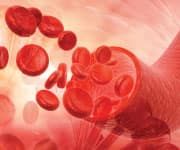Benefits of Intermittent Fasting
Scientists continue to unravel the benefits of caloric restriction and intermittent fasting.
The simple act of limiting food intake increases lifespan in animal models and reduces age-associated disorders such as diabetes and heart disease.1-4
A report published in the New England Journal of Medicine reviewed extensive research on intermittent fasting and caloric restriction. Multiple mechanisms were identified by which these dietary changes are expected to have a beneficial impact on health.3
The report found three different intermittent fasting regimens to be just as effective as true fasting at inducing benefits of caloric restriction.
Intermittent fasting, also known as time-restricted eating, helps regulate the expression and activity of proteins and other cell factors known to influence health and aging.
Those able to adjust their time of food intake may experience biological changes that boost resistance to disease and help extend lifespan.
Types of Intermittent Fasting

Modern humans have gotten used to eating three meals a day along with frequent snacks.
This constant intake of food has profound adverse effects on our metabolism and health.
Digesting and processing food is a complex, energy intensive process that can accelerate pathological aging processes.
Studies have consistently shown that intermittent fasting is superior to constant eating in many ways.
All intermittent fasting regimens have regular periods of eating when food and calories are not restricted. But their benefit comes from restricting the amount of time that one is eating, and alternating it with relatively long periods of not eating or eating very little.
Three types of intermittent fasting that have been most studied in animal models and human trials and discussed in the New England Journal of Medicine are:3,5
Alternate-day fasting. In this regimen, food intake is normal for one day followed by a day of fasting or severe caloric restriction. The pattern is continued indefinitely. Time-restricted feeding. In this model, intake of food is restricted to only a small number of hours per day. The rest of the day is spent fasting. One common pattern is to restrict food intake to six hours during the day, while fasting the remaining 18 hours. (Other programs advocate for about 16 hours a day of fasting and an eight-hour eating period.) 5:2 intermittent fasting. One of the most popular forms of intermittent fasting restricts calories (with a limit of 500-700 calories per day) on just two days of each week. Normal food intake is fine on the other five days.These intermittent fasting plans are often easier to adhere to than daily caloric restriction.
These three patterns of eating are believed to be equally effective for improving health.
Understanding Fasting

The fed state is the period of time when food has recently been consumed.
The fasting state occurs after several hours without eating, when nutrients are less available and the body must conserve energy and resources.
Cell metabolism changes dramatically between these two different states.
In the fed state, when nutrients are plentiful, energy is stored, often as fat.
In the fasting state, as carbohydrates from previous meals are used for energy, fat and other energy-storage compounds are broken down.
Some of these fats are converted by the liver into ketones, substances that provide an alternative fuel source for the brain and other tissues.
This metabolic shift to ketone metabolism takes time. Ketones in the blood begin to rise 8 to 12 hours after fasting begins.3 Most people who eat throughout the day, every day, never enter a fasting state.
Intermittent Fasting from Dawn to Sunset for Four Consecutive Weeks Induces Anticancer Serum Proteome Response and Improves Metabolic Syndrome No eating /drinking between dawn and dusk—14-15 hours each day Average 7.25 pounds of weight loss Average 8 mmHg reduction in blood pressure Significant increase in tumor suppressor/anticancer proteins Significant decrease in several tumor promoter/pro-cancer proteins Increase in a protein called calreticulin (by around 16 times) Calreticulin enhances IgG response to a SARS-CoV spike proteinSci Rep . 2020 Oct 27;10(1):18341.
Changes in the Fasting State
When energy availability is low during a fasting state, critical changes occur in cellular function.
One of the chief proteins governing cellular processes is known as mTOR. During fasting, the activity of mTOR decreases.
This leads to an increase in autophagy, a cellular “housekeeping” process that removes damaged proteins and other cellular debris. Autophagy helps to keep cells functioning optimally.3
At the same time, the activities of several other cellular functions are increased in a fasting state including:3
AMPK, which regulates metabolism and energy use, Sirtuins, which protect against age-related decline and promote longevity, and FOXOs, which help regulate the expression of genes involved in cell growth, insulin regulation, and longevity.Increased activity of each of the above-mentioned has been tied to longevity and resistance to disease.
Together, they protect cells by repairing DNA, replacing damaged cell parts, producing more mitochondria, and reducing inflammation.3
These changes in response to fasting make cells more resilient, healthier, and less prone to disease.
In fact, every one of these functions is being individually investigated by scientists with the goal of extending human life. Calorie restriction and intermittent fasting positively impact them all.
How Fasting Affects Obesity and Diabetes

Intermittent fasting has been shown to improve metabolism, improving several risk factors for diabetes and heart disease.
Most studies in animals and humans have found that intermittent fasting diets can lead to weight loss.6
A review of nine studies found that intermittent fasting regimens led to an average 3% to 8% reduction in body weight over 3 to 24 weeks.7
In one study, subjects lost 2.5% of their initial weight and 4% of their fat mass in only 22 days.8 This is especially remarkable considering that these subjects were not obese to begin with.
Intermittent fasting has been demonstrated to reverse insulin resistance in adults who suffer from prediabetes or full-fledged diabetes.9,10 In one study, fasting insulin levels decreased by 57%.8
Multiple Benefits of Caloric Restriction and Intermittent Fasting

Besides improving insulin sensitivity, caloric restriction and intermittent fasting have been shown to lower blood pressure, heart rate, cholesterol levels, and triglyceride levels.1,2
Intermittent fasting also reduces inflammation,11 which is a major contributor to atherosclerosis, the buildup of plaque in the arteries.12,13
In animal studies, caloric restriction both prevents the formation of tumors and slows the growth of existing cancers of various types.14-16
Caloric restriction has been found to have cognitive benefits as well, improving verbal memory, working (short-term) memory, higher-level executive function, and overall cognitive function in human trials.17-19
In animal models of Alzheimer’s and Parkinson’s disease, intermittent fasting has been shown to protect brain cells.20,21
In other conditions, notably asthma and multiple sclerosis, clinical evidence suggests that intermittent fasting can help reduce symptoms.3
A Conflicting Intermittent Fasting Study
The data we are reporting are based on an extensive review article published on December 26, 2019, by the New England Journal of Medicine.3
This New England Journal of Medicine article described previous studies showing systemic health improvements in humans who restrict food intake to around six hours each day. This means they fasted for about 18 hours on most days.
The authors of this New England Journal of Medicine article outlined prior studies demonstrating how intermittent fasting reduces abdominal fat while simultaneously improving most measures of disease risk.3
A randomized controlled trial published September 28, 2020, in the Journal of the American Medical Association (JAMA) was specifically designed to examine the effects of intermittent fasting on weight loss and metabolic risk markers.
The intermittent fasting group in this trial lost a little weight over 12 weeks, while the three-meal/day control group did not lose a statistically significant amount of weight. This study did not find a significant effect on metabolic risk markers.22
We’ve identified reasons why the JAMA-published trial did not find the metabolic benefits reported in a review article just 10 months earlier in the New England Journal of Medicine.
We at Life Extension® have long known that time-restricted eating (intermittent fasting) does not induce much weight loss in those who do not also reduce their overall calorie intake.
The preponderance of published evidence, however, continues to support the benefits of intermittent fasting. This includes improved glycemic markers such as fasting insulin. Elevated fasting insulin can impede weight loss.10,23,24
On October 27, 2020, a subsidiary of the scientific journal Nature reported on a human study that only required fasting 14-15 hours each day.25 The study group was in poor overall health, with mostsuffering from nonalcoholic fatty liver disease.
In just four weeks average weight loss was 7.25 pounds. Even more impressive were significant improvements in cellular proteins that protect against cancer.
The box on the previous page summarizes this study showing potential cancer-prevention effects in response to an easier to adhere to fast of 14-15 hours a day.
Summary
Caloric restriction and intermittent fasting activate proteins and induce metabolic changes that rejuvenate our cells and tissues.
Many studies have shown that these changes prolong life in animals, and reduce risk for many age-related chronic diseases, including cardiovascular disease, cancer, and dementia.
Intermittent fasting is easier for most people to adhere to than traditional fasting and can deliver many of the same benefits.
If you have any questions on the scientific content of this article, please call a Life Extension® Wellness Specialist at 1-866-864-3027.
References
Fontana L, Meyer TE, Klein S, et al. Long-term calorie restriction is highly effective in reducing the risk for atherosclerosis in humans. Proc Natl Acad Sci U S A. 2004 Apr 27;101(17):6659-63. Most J, Gilmore LA, Smith SR, et al.Significant improvement in cardiometabolic health in healthy nonobese individuals during caloric restriction-induced weight loss and weight loss maintenance. Am J Physiol Endocrinol Metab. 2018 Apr 1;314(4):E396-E405. de Cabo R, Mattson MP. Effects of Intermittent Fasting on Health, Aging, and Disease. N Engl J Med. 2019 Dec 26;381(26):2541-51. Goodrick CL, Ingram DK, Reynolds MA, et al. Effects of intermittent feeding upon growth and life span in rats. Gerontology. 1982;28(4):233-41. Anton SD, Moehl K, Donahoo WT, et al. Flipping the Metabolic Switch: Understanding and Applying the Health Benefits of Fasting. Obesity (Silver Spring). 2018 Feb;26(2):254-68. Harvie M, Howell A. Potential Benefits and Harms of Intermittent Energy Restriction and Intermittent Fasting Amongst Obese, Overweight and Normal Weight Subjects-A Narrative Review of Human and Animal Evidence. Behav Sci (Basel). 2017 Jan 19;7(1). Barnosky AR, Hoddy KK, Unterman TG, et al. Intermittent fasting vs daily calorie restriction for type 2 diabetes prevention: a review of human findings. Transl Res. 2014 Oct;164(4):302-11. Heilbronn LK, Smith SR, Martin CK, et al. Alternate-day fasting in nonobese subjects: effects on body weight, body composition, and energy metabolism. Am J Clin Nutr. 2005 Jan;81(1):69-73. Furmli S, Elmasry R, Ramos M, et al. Therapeutic use of intermittent fasting for people with type 2 diabetes as an alternative to insulin. BMJ Case Rep. 2018 Oct 9;2018. Sutton EF, Beyl R, Early KS, et al. Early Time-Restricted Feeding Improves Insulin Sensitivity, Blood Pressure, and Oxidative Stress Even without Weight Loss in Men with Prediabetes. Cell Metab. 2018 Jun 5;27(6):1212-21 e3. Faris MA, Kacimi S, Al-Kurd RA, et al. Intermittent fasting during Ramadan attenuates proinflammatory cytokines and immune cells in healthy subjects. Nutr Res. 2012 Dec;32(12):947-55. Johnson JB, Summer W, Cutler RG, et al. Alternate day calorie restriction improves clinical findings and reduces markers of oxidative stress and inflammation in overweight adults with moderate asthma. Free Radic Biol Med. 2007 Mar 1;42(5):665-74. Moro T, Tinsley G, Bianco A, et al. Effects of eight weeks of time-restricted feeding (16/8) on basal metabolism, maximal strength, body composition, inflammation, and cardiovascular risk factors in resistance-trained males. J Transl Med. 2016 Oct 13;14(1):290. Mattison JA, Colman RJ, Beasley TM, et al. Caloric restriction improves health and survival of rhesus monkeys. Nat Commun. 2017 Jan 17;8:14063. Meynet O, Ricci JE. Caloric restriction and cancer: molecular mechanisms and clinical implications. Trends Mol Med. 2014 Aug;20(8):419-27. O’Flanagan CH, Smith LA, McDonell SB, et al. When less may be more: calorie restriction and response to cancer therapy. BMC Med. 2017 May 24;15(1):106. Horie NC, Serrao VT, Simon SS, et al. Cognitive Effects of Intentional Weight Loss in Elderly Obese Individuals With Mild Cognitive Impairment. J Clin Endocrinol Metab. 2016 Mar;101(3):1104-12. Longo VD, Mattson MP. Fasting: molecular mechanisms and clinical applications. Cell Metab. 2014 Feb 4;19(2):181-92. Witte AV, Fobker M, Gellner R, et al. Caloric restriction improves memory in elderly humans. Proc Natl Acad Sci U S A. 2009 Jan 27;106(4):1255-60. Mattson MP, Arumugam TV. Hallmarks of Brain Aging: Adaptive and Pathological Modification by Metabolic States. Cell Metab. 2018 Jun 5;27(6):1176-99. Mattson MP, Moehl K, Ghena N, et al. Intermittent metabolic switching, neuroplasticity and brain health. Nat Rev Neurosci. 2018 Feb;19(2):63-80. Lowe DA, Wu N, Rohdin-Bibby L, et al. Effects of Time-Restricted Eating on Weight Loss and Other Metabolic Parameters in Women and Men With Overweight and Obesity: The TREAT Randomized Clinical Trial. JAMA Intern Med. 2020 Sep 28. Cho Y, Hong N, Kim KW, et al. The Effectiveness of Intermittent Fasting to Reduce Body Mass Index and Glucose Metabolism: A Systematic Review and Meta-Analysis. J Clin Med. 2019 Oct 9;8(10):1645. Arnason TG, Bowen MW, Mansell KD. Effects of intermittent fasting on health markers in those with type 2 diabetes: A pilot study. World J Diabetes. 2017 Apr 15;8(4):154-64. Mindikoglu AL, Abdulsada MM, Jain A, et al. Intermittent fasting from dawn to sunset for four consecutive weeks induces anticancer serum proteome response and improves metabolic syndrome. Sci Rep. 2020 Oct 27;10(1):18341.相关知识
轻断食 (Intermittent Fasting, IF)
The effects of Ramadan intermittent fasting on athletic performance: recommendations for the maintenance of physical fitness
The health benefits of dodgeball and safety tips
Benefits of Physical Activity
The Health Benefits of Dietary Fibre
Benefits of Exercise
Top 7 health benefits of tempeh
Top 8 Benefits of an Ice Bath
Importance of Exercise: Benefits & Recommended Types
一个减肥小技巧,不用长期节食也能瘦
网址: Benefits of Intermittent Fasting https://m.trfsz.com/newsview1706925.html